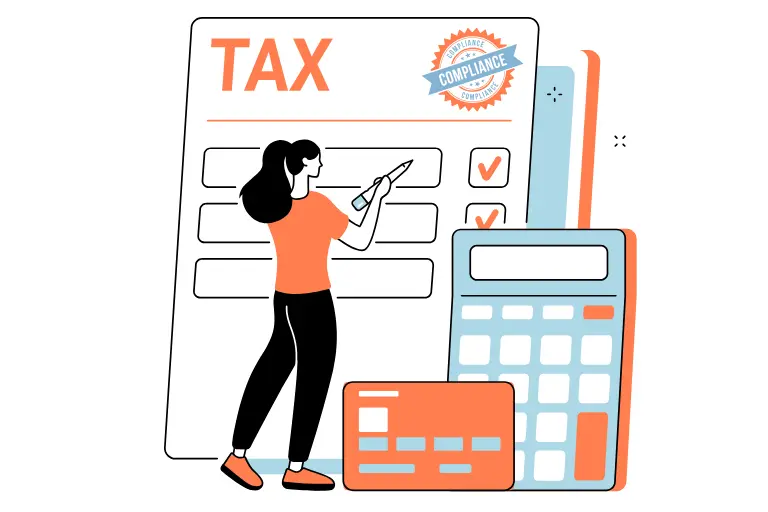
Small Business Accountants - Northern Rivers & Beyond
Supportive financial partnerships that grow with your business, powered by technology, strengthened by human care.

About Us
La Source Advisory is an accounting firm, to be the spring from which clarity, innovation, and growth emerge. Rooted in the French word “La Source” — the beginning, the spring, the origin — our name reflects our core belief: every thriving business must begin with the right foundation. We exist to be that origin point.
Always here. Always near.
La Source Advisory is dependable, accessible, and consistently present throughout your everyday business journey.
At La Source Advisory, we believe that accounting should be seamless, accessible, and tailored to the needs of modern businesses. Many small business owners find themselves overwhelmed by bookkeeping, tax filings, and ever-changing regulations. These tasks can be time-consuming, frustrating, and, if not handled properly, can lead to costly penalties. Our virtual advisory services are designed to eliminate this burden, allowing business owners to focus on growth and success. We are dedicated to transforming the way businesses interact with accountants. Instead of traditional, rigid accounting services, we offer a more personalised, accessible, and affordable solution. Through video conferencing and screen sharing, we provide real-time support exactly when our clients need it.

Our Services
.
We offer smart, reliable solutions to simplify your business operations. From compliance to cash
flow, we take care of the essentials so you can focus on growth. Our services are designed to
support sustainability, efficiency, and success.

Managing Your Business Books
Weekly Reconciliation, Monthly Reports, and Receipt Processing.
Stay on top of your finances with our Weekly Reconciliation, delivering precise transaction tracking, and our insightful Monthly Reports to keep your business on track. Plus, we handle your Receipt Processing for seamless organisation and stress-free record-keeping!

Keeping Your Business Compliant
Stay ahead with our all-in-one tax services
Monthly/Quarterly BAS Reporting, Smart Annual Tax Planning, Unlimited Tax Advice, and Annual Tax Returns & Financial Statements. We handle all ATO interactions and ensure your full Compliance, taking the stress out of tax season for you!

Tracking Your Carbon Footprint
Sumday - Affordable reporting done right
Effortlessly track emissions, ensure audit-ready reports, and make a real impact with a powerful carbon accounting platform. We know how the app works to provide the required output needed for your business to understand its emissions and identify simple ways to improve them. Stay ahead of your competitors, advertise your sustainability efforts, and stand out by showcasing your commitment to the environment.

Cashflow Story
Cashflow Story, CFO-Level Meetings
Using a world-class software designed to enhance profit, cash flow, and business value. With this powerful tool, we provide businesses with actionable insights and strategies to optimise their financial performance and drive sustainable growth.

Software support
We provide expert assistance with top accounting software, such as Xero and QuickBooks, helping you streamline financial processes, enhance accuracy, and save valuable time. Giving you even more freedom.

Tax Strategy
We create a professional Tax Planning Report and Action Plan for our clients, helping them identify strategies to legally minimise their tax liabilities. Tax Strategist is the ideal tool to showcase the impact of these tax-saving strategies.

Our Services
We offer smart, reliable solutions to simplify your business operations. From compliance to cash
flow, we take care of the essentials so you can focus on growth. Our services are designed to
support sustainability, efficiency, and success.

Managing Your Business Books
Weekly Reconciliation, Monthly Reports, and Receipt Processing.
Stay on top of your finances with our Weekly Reconciliation, delivering precise transaction tracking, and our insightful Monthly Reports to keep your business on track. Plus, we handle your Receipt Processing for seamless organisation and stress-free record-keeping!

Keeping Your Business Compliant
Stay ahead with our all-in-one tax services
Monthly/Quarterly BAS Reporting, Smart Annual Tax Planning, Unlimited Tax Advice, and Annual Tax Returns & Financial Statements. We handle all ATO interactions and ensure your full Compliance, taking the stress out of tax season for you!

Tracking Your Carbon Footprint
Sumday - Affordable reporting done right Effortlessly track emissions, ensure audit-ready reports, and make a real impact with a powerful carbon accounting platform. We know how the app works to provide the required output needed for your business to understand its emissions and identify simple ways to improve them. Stay ahead of your competitors, advertise your sustainability efforts, and stand out by showcasing your commitment to the environment.

Cashflow Story
Cashflow Story, CFO-Level Meetings
Using a world-class software designed to enhance profit, cash flow, and business value. With this powerful tool, we provide businesses with actionable insights and strategies to optimise their financial performance and drive sustainable growth.

Software support
We provide expert assistance with top accounting software, such as Xero and QuickBooks, helping you streamline financial processes, enhance accuracy, and save valuable time. Giving you even more freedom.

Tax Strategy
We create a professional Tax Planning Report and Action Plan for our clients, helping them identify strategies to legally minimise their tax liabilities. Tax Strategist is the ideal tool to showcase the impact of these tax-saving strategies.

Choose Your Plan
Basic
$200
+GST
✔ Volume: Light
✔ Weekly Reconciliation
✔ Monthly Reporting
✔ Annual Tax Return
✔ Receipt Processing
✔ Unlimited Tax Advice
✔ Annual Compliance
✔ Included: Keeper & Link My Books
✔ Annual Tax Planning
✖ Strategic Meetings
✖ Cashflow Story Planning
✖ Sustainable Reporting
✔ Great For: New business
✔ Benefit: Clear insights and tax compliance from day one
Advance
$500
+GST
✔ Volume: Medium
✔ Weekly Reconciliation
✔ Monthly Reporting
✔ Annual Tax Return
✔ Receipt Processing
✔ Unlimited Tax Advice
✔ Annual Compliance
✔ Included: Keeper & Link My Books
✔ Annual Tax Planning
✔ Strategic Meetings: Quarterly
✔ Cashflow Story Planning
✖ Sustainable Reporting
✔ Great For: Small business
✔ What You Get: Better visibility, fewer surprises, and tax confidence at every step
PRO
*$700
+GST
✔ Volume: High
✔ Weekly Reconciliation
✔ Monthly Reporting
✔ Annual Tax Return
✔ Receipt Processing
✔ Unlimited Tax Advice
✔ Annual Compliance
✔ Included: Keeper & Link My Books
✔ Annual Tax Planning
✔ Strategic Meetings: Monthly
✔ Cashflow Story Planning
✔ Sustainable Reporting
✔ Great For: Growing business
✔ Key Benefit: Unlock deeper financial insights and stay confidently compliant as you grow
*starting
Always Here, Always Near

Tara Wurtele
CPA
Tara Wurtele is a CPA and registered tax agent with a passion for providing essential tax and business advice to support new business ideas. With a strong commitment to promoting technology, Tara enables seamless collaboration between businesses and their advisors. Always eager to learn, Tara completed a master’s of Tax Law at the University of Melbourne, graduating with Honors, and has a keen interest in the law surrounding international tax. Drawing on extensive experience in the accounting field, Tara founded La Source Advisory in 2023, with a mission to empower small business owners by enhancing their financial literacy and simplifying accounting through innovative technology. Tara continually researches and enhances technology and services to better meet the evolving needs of clients.





